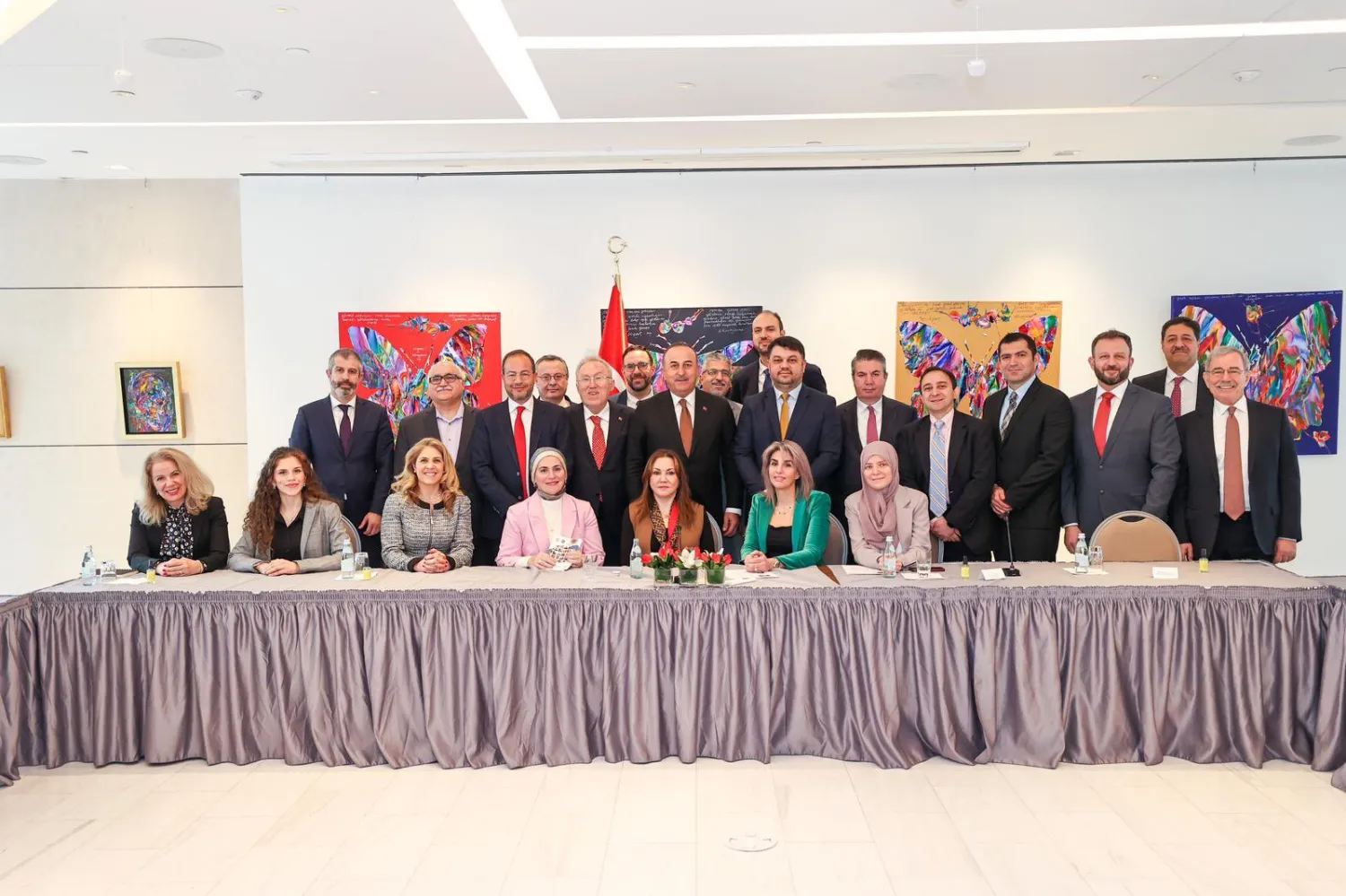Turkish-Syrian border areas witnessed this week a military escalation, marking the five-year anniversary of Türkiye’s Operation Olive Branch aimed to clear members affiliated with the Kurdistan Workers’ Party (PKK) from the Afrin region.
On Saturday, the Syrian Observatory for Human Rights said Turkish forces and their proxies shelled the vicinity of Abin village in Shirawa district, Maraanaz, Al-Malkiyah and Al-Shawargha in Shiran district in Afrin countryside north western of Aleppo. However, the extent of damage were not reported.
Also, violent clashes with heavy and medium machine guns erupted between members of the Turkish-backed Syrian National Army (SNA) and Syrian regime forces, following an attempt to infiltrate SNA positions on the frontline of Tadef town in Al-Bab countryside, east of Aleppo.
Meanwhile, commemorating the fifth anniversary of the Turkish Olive Branch military operation in Afrin, hundreds of displaced people from the city and from al-Shahba area in the northern countryside of Aleppo held a massive march in Tal Rifaat, chanting slogans denouncing the Turkish presence in the region. The demonstrators also raised pictures of the victims who were killed during the Turkish military operation, which began on January 20, 2018 and lasted 64 days.
According to the Observatory, the Turkish operation led to the displacement of a third of the indigenous inhabitants who sought shelter in refugee camps and almost-complete devastated houses in different Syrian areas, mainly Aleppo countryside.
Turkish forces and their proxy factions in Afrin are accused of seeking to change the demography of the region through housing the families of militiamen in residential villages established by Turkish-backed institutions.
Meanwhile, Turkish forces on Friday said they “neutralized” 11 members of the People's Defense Units (YPG) after the group fired rockets into the Türkiye-Syria border area, the Turkish Defense Ministry said.
“PKK/YPG terrorists carried out a multi-barrel rocket attack from Tel Rifat to the responsibility area of our Oncupinar Border Post. While there was no damage/loss in our units, the terrorist targets were hit strongly within the scope of self-defense,” the ministry said in a written statement.
Any attack by the terrorists will not remain unanswered, it reiterated.
Separately, Turkish Foreign Minister Mevlut Cavusoglu met on Friday night with representatives of the Syrian diaspora in New York.
In a tweet, the Minister said he reiterated Türkiye’s support to the political process in line with UNSC Res. 2254.
In a joint statement released by Ankara and Washington on the occasion of the Türkiye-US Strategic Mechanism, Cavusoglu and US Secretary of State Antony Blinken said they discussed all aspects of the Syrian crisis and reiterated the commitment of Türkiye and the United States to a Syrian-led political process in accordance with UN Security Council Resolution 2254.
These developments came while protests were held for the third consecutive week in the opposition-controlled areas in northern Syria, rejecting the rapprochement between Ankara and the regime of Syrian President Bashar Assad.
The protesters renewed their refusal to reconcile with the regime and they affirmed their rejection of all plans that aim to support Assad and his regime.









